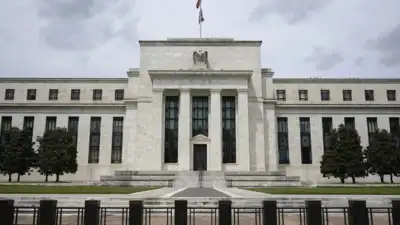ARTICLE AD BOX

Minutes from the US Federal Reserve’s late July policy meeting revealed that a majority of officials viewed upside inflation risks as more significant than employment concerns, highlighting internal disagreements over the economic impact of President Donald Trump's tariffs. "A majority of participants judged the upside risk to inflation as the greater of these two," the report said, as quoted by the Associated Press, adding that, " a couple of participants considered downside risk to employment the more salient" one. The minutes reflected divisions within the Federal Open Market Committee, with dissenting votes from Fed governors Christopher Waller and Michelle Bowman in July. Despite Trump’s repeated calls for rate cuts, policymakers kept interest rates at 4.25–4.50 percent.
Waller and Bowman supported a 25 basis point reduction, with Bowman citing concerns about economic weakening and "the risk of damage to the labor market.
" Wednesday’s released minutes noted that while two officials preferred lower rates, the dissenters appeared isolated. They believed tariffs would not have a persistent effect on prices but remained concerned about labor market conditions. Economic activity growth slowed during the first half of 2023, with tariff impacts "becoming more apparent in the data, as indicated by recent increases in goods price inflation."
Several officials warned that inflation has persistently exceeded the Fed’s two-percent target, raising concerns about long-term expectations, particularly if tariffs continue to affect prices. Participants also noted that the full impact of higher duties on consumer costs could take time to show. Oxford Economics economist Ryan Sweet said, "The labour market will be the swing factor on whether the Fed cuts interest rates in September or not." He added, "It's likely the August employment report and revisions will be the determining factor." Sweet noted that "odds are rising that the Fed cuts sooner than we anticipate."



.png)
.png)
.png)
















 3 hours ago
3
3 hours ago
3









 English (US) ·
English (US) ·